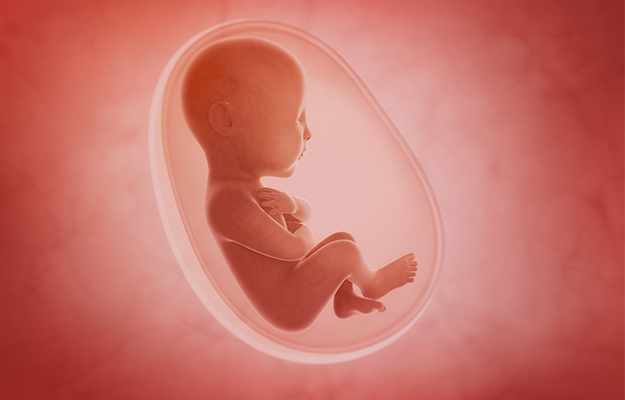We tend to think about our reproductive system as a critical factor in fertility, pregnancy, and childbirth. Reproductivity is for maintaining posterity.
However, this aspect of human health is more vital than we think.
A study indicates a potential reason why women with early menopause or a disrupted reproductive system age faster and are more vulnerable to age-related diseases.
Beyond Fertility – How the Reproductive System Shapes Aging
Understanding a Healthy Reproductive System
A healthy reproductive system refers to the condition in which the sexually-reproducing organs, such as ovaries in females and testicles in males, are functional in all life stages.
The most fundamental role of a healthy reproductive system is to produce eggs and sperm cells. Some other functions include transporting and sustaining sex cells, nurturing and developing offspring, and making sex hormones.
In women specifically, a healthy female reproductive system is involved in the following:
- Fat metabolism
- Strengthening of bones
- Skin improvement
- Emotions and behavior
- Development of breast
- Maturation of reproductive organs
For this reason, a healthy reproductive system is mandatory for a female to function normally and maintain overall health. However, researchers have found that the role of reproductivity is beyond what we know about it so far.
What is Meiosis, and How Does It Affect Aging?
Meiosis – How Our Cells Maintain the Chromosomes

Meiosis is a unique cell division process occurring in all animals. However, this process happens only in the reproductive cells that produce eggs or sperm.
In humans, cells contain two sets of chromosomes, one from each parent. Nevertheless, the egg and sperm only need one so that when they unite, two are preserved to maintain the number of chromosomes while producing a new fetus.
During proliferation, each cell divides twice to produce four daughter cells. If a cell has an extra or missing chromosome, it may experience a breakdown. Therefore, cells carefully count during meiosis to ensure each daughter cell has precisely 23 chromosomes.
The eventual fertilized egg contains 46 chromosomes when a sperm with 23 chromosomes fertilizes an egg with 23 chromosomes. Thus, all cells developing from that fertilized egg will have the same number of chromosomes.
Meiosis and Aging: What is the Connection?
Noticing the vital role of meiosis in reproduction, scientists from the University of Pittsburgh investigated the role of the reproductive system in overall health and how disrupted meiosis may cause negative consequences to the aging status.
They discovered that disrupted meiosis in the reproductive cells of the animal subjects resulted in a decline in overall health and produced a gene expression that indicates accelerated aging similar to that of humans.
The study’s animal subjects (C. Elegans worm) are ideal for aging research due to their short lifetime and similar genetic pathways to humans. In addition, the researchers suggested that disrupted meiosis in mutated worms might share similarities with humans.
It was, in fact, the case, which is a remarkable discovery because it shows that interfering with the reproductive system may have similar effects on both worms and humans.
The Negative Consequences of Disrupted Meiosis
While the effects of aging on fertility are well-established, research has only started to explore the other way around: the impact of reproductive health on aging.
Researchers found that meiosis disruption dramatically reduces worm lifespan and speeds up aging. Animals with interrupted meiosis-induced gene mutations survived shorter than their non-mutated counterparts. Also, the mutants’ general health worsened, and they saw early memory, strength, and mobility decline.
The disruption of protein homeostasis, which is at the root of all neurodegenerative disorders like Alzheimer’s, was also evident in these animals.
Researchers also discovered that, at day 1 of adulthood, meiosis mutants expressed genes similar to those of healthy worms at day 10. This finding is astounding since it would be like a person in their early 20s having the body of a person in their 70s.
Preventing Age-related Diseases by Regulating Meiosis
As detrimental as disrupted meiosis and protein homeostasis are, they are not irreversible.
Worm lifespan decline stopped when the researchers restored their protein homeostasis. This finding indicates that protein homeostasis is the primary mechanism connecting aging and reproductive health.
Researchers plan to examine the relationship between reproductive health and aging in people who experience premature menopause due to genetic disease and display comorbidities such as heart disease, autoimmune disorders, and osteoporosis.
This research will likely help develop early detection tests for health impairments driven by irregular reproduction and new therapies or pharmaceutical formulations that can treat such age-related disorders.
The discovery of reproductive aging has made it possible to understand how a healthy reproductive system affects our biological clock. The study shows that meiosis integrity affects aging control and that protein homeostasis regulation may be a way through which reproductive aging affects overall health.
Yunique Medical provides FUNCTIONAL MEDICINE for optimized health and performance. We offer customized, scientifically advanced treatments to create a new state of human thriving. Why be ordinary when you can be optimal?
HUMAN 2.0 begins here!
Contact us to schedule your FREE consultation at one of our three locations in Florida – Ocala, Fruitland Park (The Villages), and Daytona.
UP NEXT:

